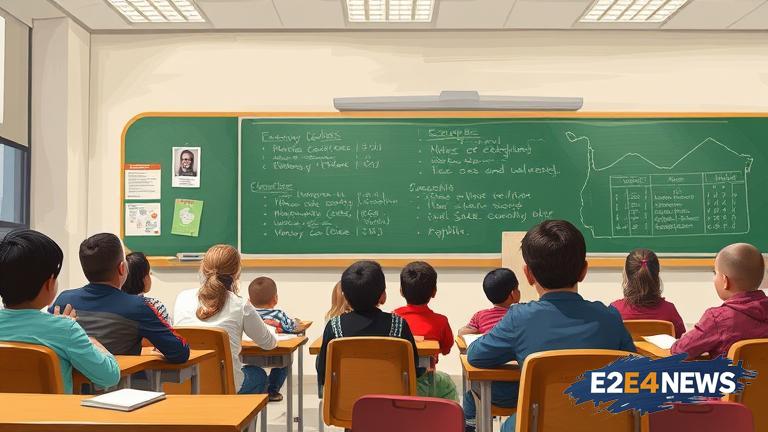Massachusetts has introduced a novel initiative to retrain teachers in an effort to enhance reading skills among students. The program, which is a response to the state’s declining reading scores, aims to equip teachers with the necessary skills and knowledge to effectively teach reading. According to recent data, Massachusetts has seen a significant drop in reading scores, with many students struggling to meet the required standards. This decline has prompted concerns among educators, policymakers, and parents, who are eager to find solutions to improve reading skills. The retraining program is designed to address this issue by providing teachers with the latest research-based methods and techniques for teaching reading. The initiative is part of a broader effort to improve education in Massachusetts, which has long been considered one of the top-performing states in the country. Despite its strong reputation, Massachusetts has faced challenges in recent years, including a decline in reading scores and a widening achievement gap. The retraining program is seen as a key component in addressing these challenges and ensuring that all students have access to high-quality education. The program will focus on evidence-based reading instruction, which emphasizes the importance of phonics, phonemic awareness, and fluency. Teachers will receive training on how to implement these methods in their classrooms, as well as how to assess student progress and adjust their instruction accordingly. The initiative is being led by the Massachusetts Department of Elementary and Secondary Education, which has partnered with several organizations to provide the training and support. The program is expected to reach thousands of teachers across the state, who will be able to apply their new skills and knowledge to help students improve their reading skills. In addition to the retraining program, Massachusetts is also investing in other initiatives to support reading instruction, including the development of new curriculum materials and the provision of additional resources for schools. The state is also working to address the root causes of the decline in reading scores, including poverty and lack of access to early childhood education. By taking a comprehensive approach to addressing the issue, Massachusetts hopes to not only improve reading skills but also to close the achievement gap and ensure that all students have the opportunity to succeed. The initiative has received widespread support from educators, policymakers, and parents, who are eager to see improvements in reading scores. While there are challenges ahead, many are optimistic that the retraining program will have a positive impact on student outcomes. As the program gets underway, educators and policymakers will be closely monitoring its progress, making adjustments as needed to ensure that it is meeting its goals. The success of the initiative will depend on a variety of factors, including the quality of the training, the level of support provided to teachers, and the willingness of schools to implement the new methods. If successful, the program could serve as a model for other states and school districts, which are also struggling to improve reading skills. In the meantime, Massachusetts will continue to work towards its goal of providing all students with a high-quality education, regardless of their background or zip code. The state’s commitment to education is evident in its investment in initiatives like the retraining program, which demonstrates a willingness to think outside the box and try new approaches to address persistent challenges. As the program moves forward, it will be important to continue to evaluate its effectiveness and make adjustments as needed to ensure that it is having the desired impact. By doing so, Massachusetts can help to ensure that all students have the skills and knowledge they need to succeed, both in school and beyond.
